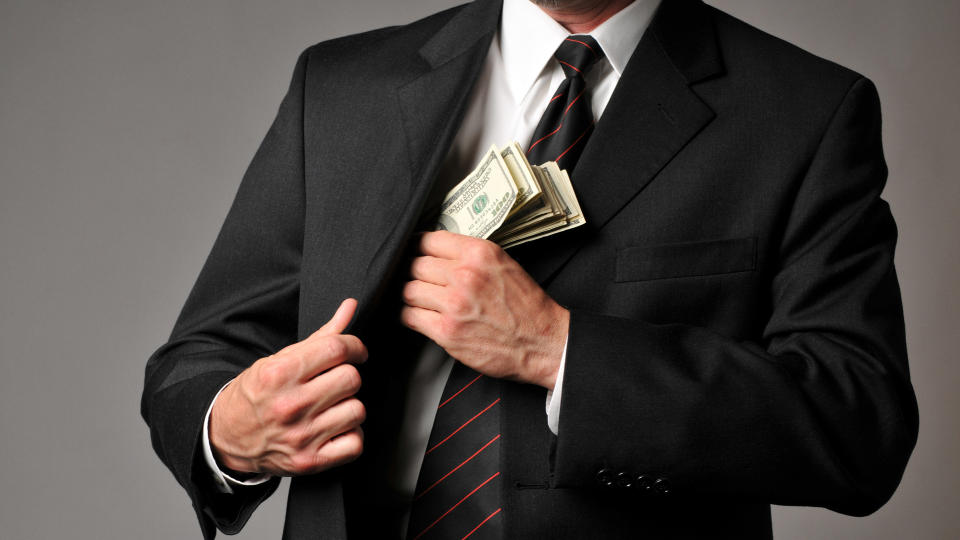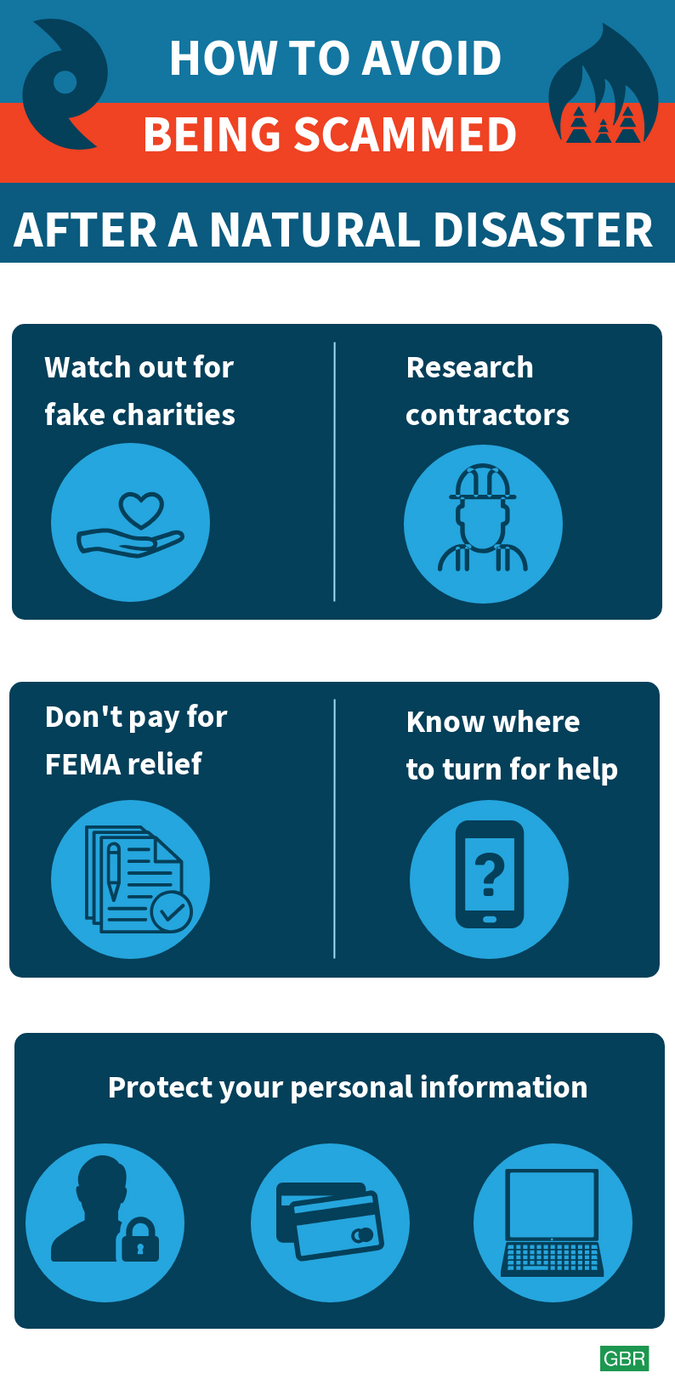How To Avoid Being Scammed After a Natural Disaster

In the wake of natural disasters, scammers are known to seek out victims amongst the wreckage. From home contractors who don’t deliver what they promise to fraudulent charities and even outright theft, it’s especially important to be vigilant after disasters such as hurricanes, floods, earthquakes and tornadoes.
Social Security Scams: 3 Common Requests and How To Report Them
Zelle Facebook Marketplace Scam: How To Recognize and Avoid This Scam
Before you send money to a charity, hire a contractor or make a payment to anyone, here are some warnings The Federal Trade Commission has issued about common scams.

Watch Out For Fake Charities
One of the most common scams, according to the FTC and American Association of Retired Persons, a nonprofit organization that empowers older adults, is to establish fake charities and collect money from well-meaning people who want to help out in a time of crisis.
The FTC advises to Google the name of the organization, along with words like “fraud,” or “scam” to determine if the organization is legit. You can also check the Better Business Bureau website for reports of complaints, or look up the organization on the National Association of State Charity Officials website.
Don’t assume that a charity is legitimate just because it has a website or Facebook page. Also, avoid giving to sites like GoFundMe unless you know the individual directly. If you do know the family affected, you may consider a gift card to their favorite restaurant or grocery store, or hand-delivering a home-cooked meal in lieu of a donation that may have hidden fees or tax ramifications for the recipient. Plus, they might have other immediate needs worth lending a hand to first.
Research Contractors Carefully
Be cautious of people offering emergency debris removal and clean-up, AARP warns. Some may charge high prices or demand upfront payment, but then take your money and run. Legitimate businesses may need licenses and insurance to operate. Ask to see their credentials. Read Yelp reviews and check the BBB for a listing. The best way to find home contractors is through word-of-mouth, so you can be confident that they come recommended by people you trust.
When you’re dealing with contractors of any kind, always pay by check made out to the business name. Do not use peer-to-peer payment services such as Venmo or Zelle, as neither service offers purchase protection. These services are not designed for business use and your transaction may not be protected if you discover the person you paid was a scammer.
Don’t Pay for FEMA Relief
FEMA never charges an application fee and won’t ask for money in exchange for services. If someone is requesting money to help you apply for FEMA relief, steer clear. They are probably a scammer.
Protect Your Personal Information — Online and Off
Never give personal information, including your social security number or credit card information, to anyone claiming to be a government official or part of a charity organization. If you are sharing personal information, such as health insurance account numbers, make sure to keep the information well-guarded.
If you are making a purchase by credit card over the phone, be sure to move to a secure location where no one can overhear the digits. Better yet, ask if there’s a way to complete the transaction online through a secure and encrypted site.
Likewise, if you are making online purchases, try to avoid doing so on a public Wi-Fi network. It may be difficult if your home is without power to conduct business securely online, but using a credit or debit card that generates a virtual account number for each online transaction can add a layer of protection.
Learn: How Can I Recover Money From a Scammer?
Identity Theft: How to Keep Your Social Security Number Safe From Fraud
Know Where To Turn
Preparation is key before, during and after storms and other natural disasters. By being aware of some of the risks, you’ll know what to watch for. The National Center for Disaster Fraud was established after Hurricane Katrina to help improve the detection, prevention, investigation and prosecution of fraud during disasters, according to AARP. The organization could be a helpful resource if you, or someone you know, has been a victim of a scam or suspects fraudulent activity in the wake of a disaster.
More From GOBankingRates
This article originally appeared on GOBankingRates.com: How To Avoid Being Scammed After a Natural Disaster

 Yahoo Finance
Yahoo Finance 